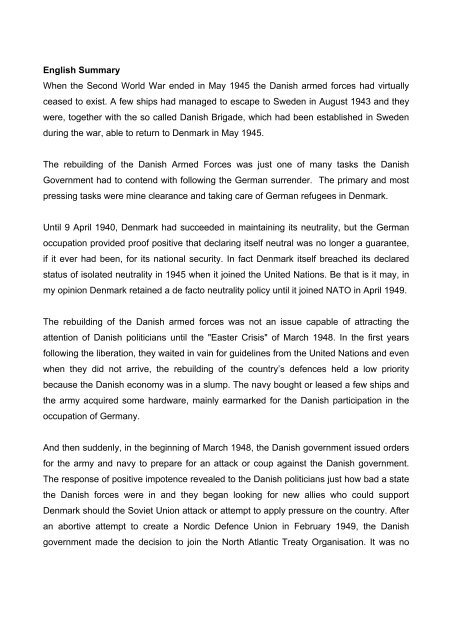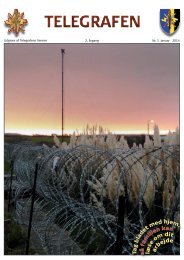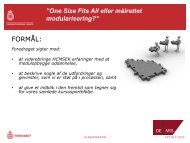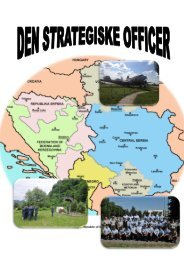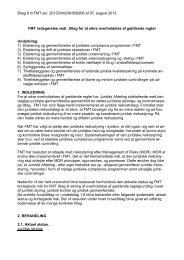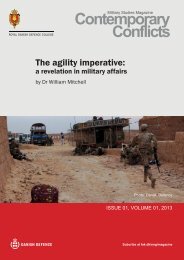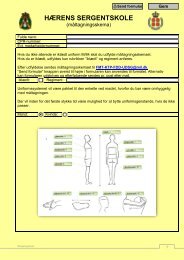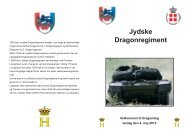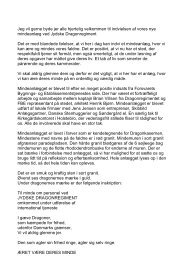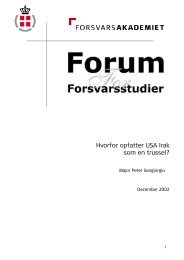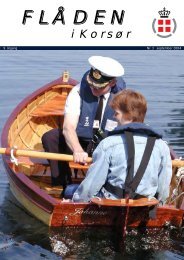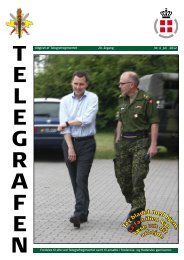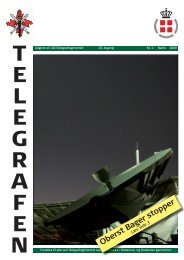Aldrig mere en 9. april! - Forsvarskommandoen
Aldrig mere en 9. april! - Forsvarskommandoen
Aldrig mere en 9. april! - Forsvarskommandoen
Create successful ePaper yourself
Turn your PDF publications into a flip-book with our unique Google optimized e-Paper software.
English Summary<br />
Wh<strong>en</strong> the Second World War <strong>en</strong>ded in May 1945 the Danish armed forces had virtually<br />
ceased to exist. A few ships had managed to escape to Swed<strong>en</strong> in August 1943 and they<br />
were, together with the so called Danish Brigade, which had be<strong>en</strong> established in Swed<strong>en</strong><br />
during the war, able to return to D<strong>en</strong>mark in May 1945.<br />
The rebuilding of the Danish Armed Forces was just one of many tasks the Danish<br />
Governm<strong>en</strong>t had to cont<strong>en</strong>d with following the German surr<strong>en</strong>der. The primary and most<br />
pressing tasks were mine clearance and taking care of German refugees in D<strong>en</strong>mark.<br />
Until 9 April 1940, D<strong>en</strong>mark had succeeded in maintaining its neutrality, but the German<br />
occupation provided proof positive that declaring itself neutral was no longer a guarantee,<br />
if it ever had be<strong>en</strong>, for its national security. In fact D<strong>en</strong>mark itself breached its declared<br />
status of isolated neutrality in 1945 wh<strong>en</strong> it joined the United Nations. Be that is it may, in<br />
my opinion D<strong>en</strong>mark retained a de facto neutrality policy until it joined NATO in April 194<strong>9.</strong><br />
The rebuilding of the Danish armed forces was not an issue capable of attracting the<br />
att<strong>en</strong>tion of Danish politicians until the "Easter Crisis" of March 1948. In the first years<br />
following the liberation, they waited in vain for guidelines from the United Nations and ev<strong>en</strong><br />
wh<strong>en</strong> they did not arrive, the rebuilding of the country’s def<strong>en</strong>ces held a low priority<br />
because the Danish economy was in a slump. The navy bought or leased a few ships and<br />
the army acquired some hardware, mainly earmarked for the Danish participation in the<br />
occupation of Germany.<br />
And th<strong>en</strong> sudd<strong>en</strong>ly, in the beginning of March 1948, the Danish governm<strong>en</strong>t issued orders<br />
for the army and navy to prepare for an attack or coup against the Danish governm<strong>en</strong>t.<br />
The response of positive impot<strong>en</strong>ce revealed to the Danish politicians just how bad a state<br />
the Danish forces were in and they began looking for new allies who could support<br />
D<strong>en</strong>mark should the Soviet Union attack or attempt to apply pressure on the country. After<br />
an abortive attempt to create a Nordic Def<strong>en</strong>ce Union in February 1949, the Danish<br />
governm<strong>en</strong>t made the decision to join the North Atlantic Treaty Organisation. It was no


